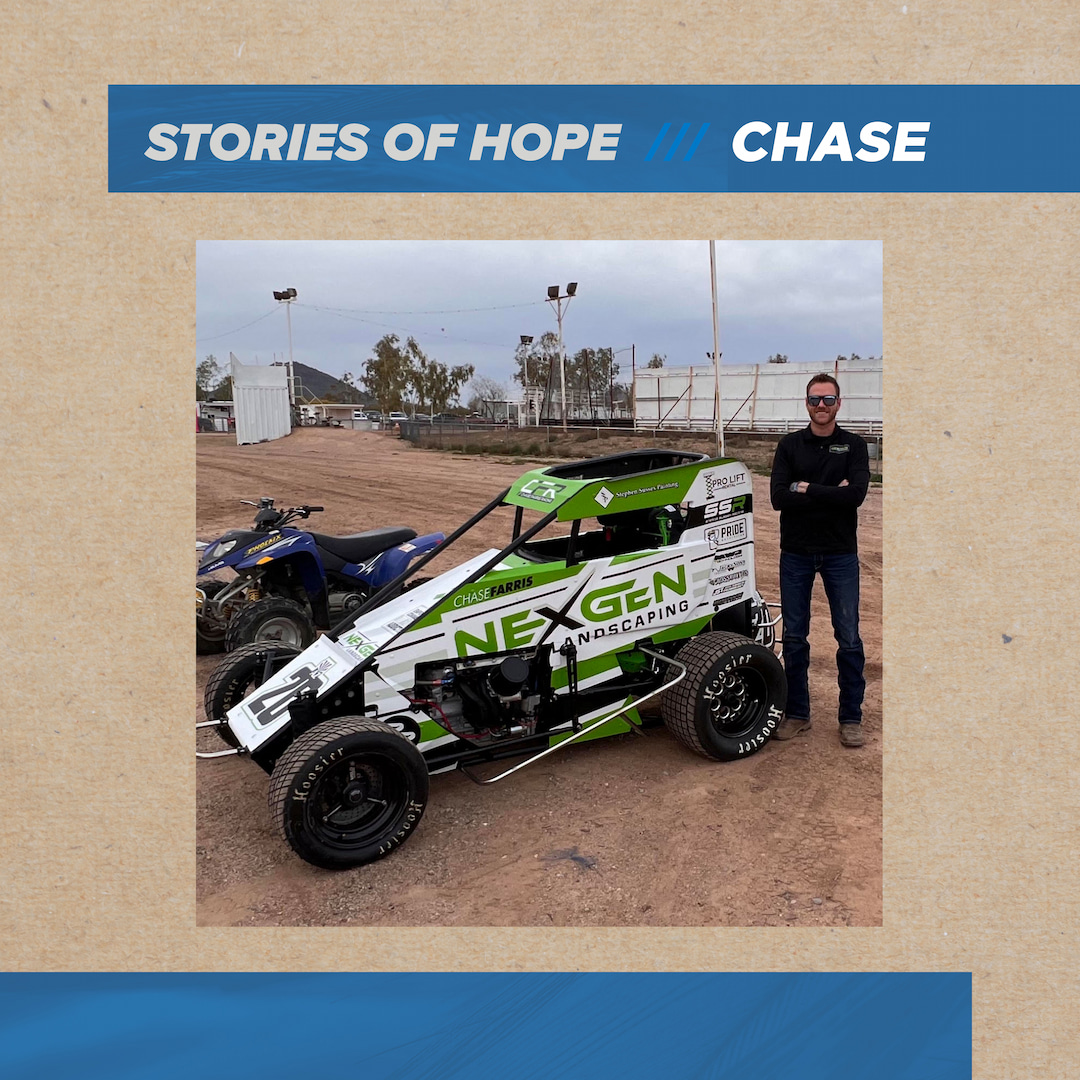IF I COULD PASS ON ONE THING I LEARNED, IT’S NOT TO BE AFRAID TO REACH OUT FOR HELP.

By Chase Farris
My senior year in high school radically changed my life – but not for the better.
A group of friends began experimenting with opioids. I wasn’t familiar with Percocet and Oxycontin, but I started taking them anyway. Opioids were everywhere and easy to get.
After a couple of months of regular use, I started feeling ill. My palms were sweating.
I went through depression. My friends told me, ‘You’re withdrawing.’ I wasn’t familiar with this feeling, so I tried quitting the drugs. But I couldn’t.
My life spiraled out of control. It revolved exclusively around opioids. I only wanted more. I spent over $100 daily on illicit drugs and sold off all my stuff to buy more. I eventually dropped out of high school.
I ruined several relationships, couldn’t hold a job, and withdrew from everyone and
everything. It came to the point where my mom finally had to kick me out of the house. That’s when I hit rock bottom.
I ended up homeless with the occasional couch to sleep on for the next five years. While on the streets, I couldn’t gain clarity. My mind was foggy; everything was a blur. I tried quitting but ended up calling the wrong people. All I could think about was my next high.
I went in and out of rehab several times. Then I found Calvary Addiction Center, a Christian-based rehab facility in Phoenix, Arizona.
I hadn’t been there long when the Pastor asked me to lead the bible study sessions. I was surprised and asked, ‘You want me to do this? I just came off the streets, and you want me to lead the program?’ He insisted. Leading that program gave me a sense of leadership I hadn’t felt in a long time.
I ended up moving in with my grandparents after I completed the program. My grandfather is a great man. He helped me set my priorities.
I got a job as a general laborer at a commercial landscaping company making $8 an hour in the same single-family HOA community five days a week. I took Vivitrol, an opioid blocker, for three months. After a while, I realized some time had gone by. I was putting in the work and was beginning to turn my life around.
I worked hard, earned a promotion to Crew Leader, and ran multiple divisions for that company. Eventually, I took a job with a new company as their Field Supervisor and was promoted to Director of Field Operations. After a couple of years, I got my contractor’s license and started a commercial landscaping company in 2019.
My grandfather owned a large commercial landscape company for over 30 years. So, as a kid, I wanted to be a business owner. But when I struggled with my addiction, I thought I would never become that person.
Now I’m a third-generation landscaper here in the valley. It’s been a humbling journey. I have ten full-time and five part-time employees. I remember our first contract for $300. Today we’re doing close to $100,000 a month.
Faith played a significant role in my recovery. I attend church regularly and even became a worship leader. I always go back to Jeremiah 29:11: “For I know the plans I have for you,” declares the Lord, “plans to prosper you, and not to harm you, plans to give you hope and a future,” and to Philippians 4:13: ‘I can do all things through Christ who strengthens me.’
Owning my own business allowed me to return to my passion, racing, about three years ago. I’ve gotten the opportunity to get behind the wheel of micros, midgets, sprint cars, and stock cars. I’m thankful and excited to be racing again. I’ve been building a midget race car over the past six months and will compete in the full schedule this year.
Now each day, I wake up remembering I must work on myself. If I start opioids again, that could be the last. I might not come out of it next time.
If I could pass on one thing I learned, it’s not to be afraid to reach out for help. It’s important to plug into a community that has gone through what you’re going through. Every day is a new opportunity.
Addiction can sometimes feel hopeless for those struggling with the disease, and for their families and loved ones. These stories speak to the overwhelming challenges of addiction—and offer hope for healing and recovery. They are the stories of our neighbors in the Spokane community, told with immense courage, with the hope of encouraging others in their fight. We are in this together.
Copyright © 2024 The Rayce Rudeen Foundation. All Rights Reserved. Site designed & developed by Houdini Interactive.